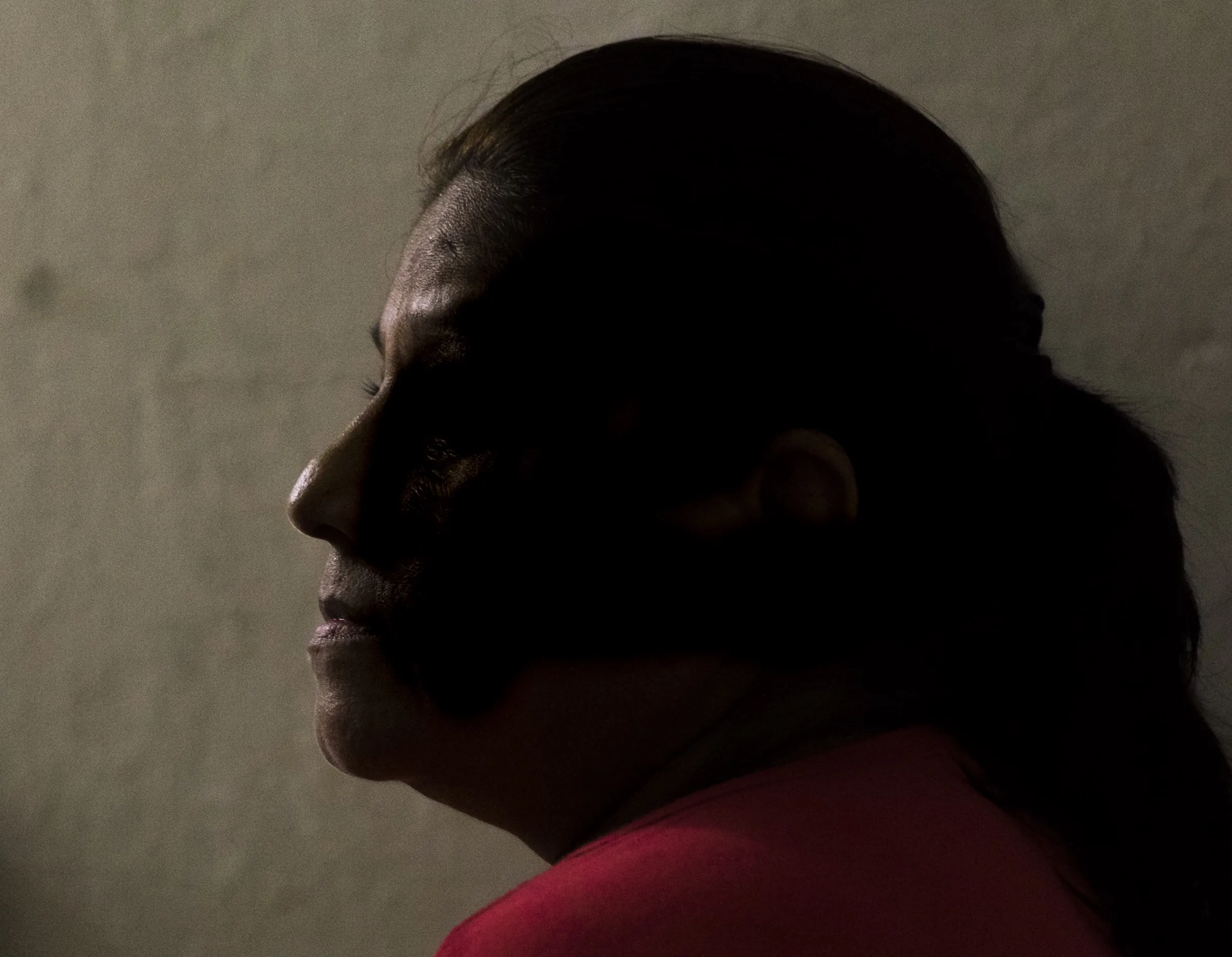Trigger Warning – This story contains information about sexual assault, violence, and/or suicide which may be triggering to survivors.
For the next six years, she endured the abuse. When she moved into her grandmother’s house with her father at age 12, her uncle — and his assaults — followed. “When I was a little girl, I was innocent,” Elizabeth, now 52, says. “I didn’t understand what was going on.”
She tells her story sitting at the foot of her bed, which is covered in a purple plaid blanket. Hands in her lap, she fiddles with a handkerchief, emotion rising and falling within her as she recounts a life of sexual abuse that would extend well beyond the predatory hands of her uncle — and include a succession of employers in whose homes she cleaned, cooked and cared for their children. Across the room, on her dresser, are photographs of her own beloved children and grandchildren, who can be heard in other parts of the house, unaware of the story unfolding behind the curtain that serves as Elizabeth’s bedroom door. On the floor are a hamper of neatly folded clothes and two teddy bears, one holding a heart that reads, “Love you.”
Desperate to escape her uncle, Elizabeth left her grandmother’s house when she was 14, working as a maid in a family’s home. But, again, the abuse trailed her, as the employer and his son both regularly harassed Elizabeth. “When I told my aunt what was happening, she didn’t believe me,” she says. “She said I was lazy and that I was making it all up because I didn’t want to work.”
From house to house, family to family, the abuse dogged Elizabeth, like a persistent shadow she couldn’t outrun. In another home, the wife worked nights as a teacher, and that’s when her husband would come to Elizabeth’s bedroom and repeatedly pressure her to have sex. She left after six months.
In still another, she worked from 6 a.m. to 8 p.m., cleaning, washing, cooking, folding clothes. The wife was good to her, Elizabeth says. The husband became obsessed with her. She was 16. He was 50. “He was jealous and protective of me,” she remembers. “He controlled who was calling me on the phone. He wouldn’t let me visit my grandmother.”

